Cats require nutrition that’s very different from standard dog or human nutrition. Cat food is almost always high in protein since cats use protein as their primary source of energy. With the rising popularity of grain-free cat food, pet parents are asking if grain-free cat food is better for their pets.
Let’s find out everything you need to know about grain-free cat food.
What is Grain-Free Cat Food?
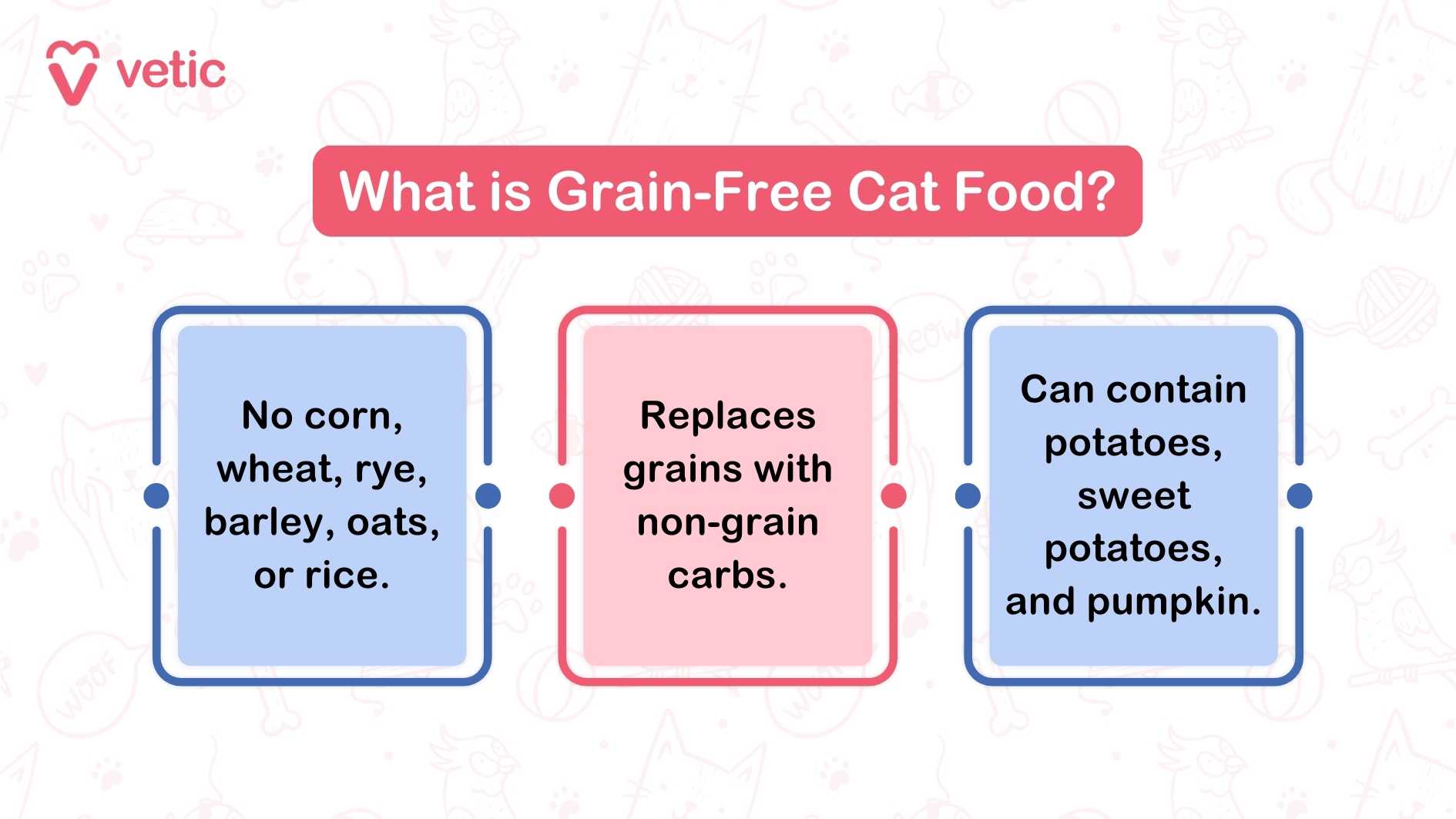
When a cat food packet is labeled “grain-free”, it means the food does not contain any of the following –
- Corn
- Wheat
- Rye
- Barley
- Oats
- Rice
Most cat foods do contain grains and their byproducts, including –
- Gluten
- Starch
- Flour
- Bran
- Hull
Is Gluten Harmful for Cats?
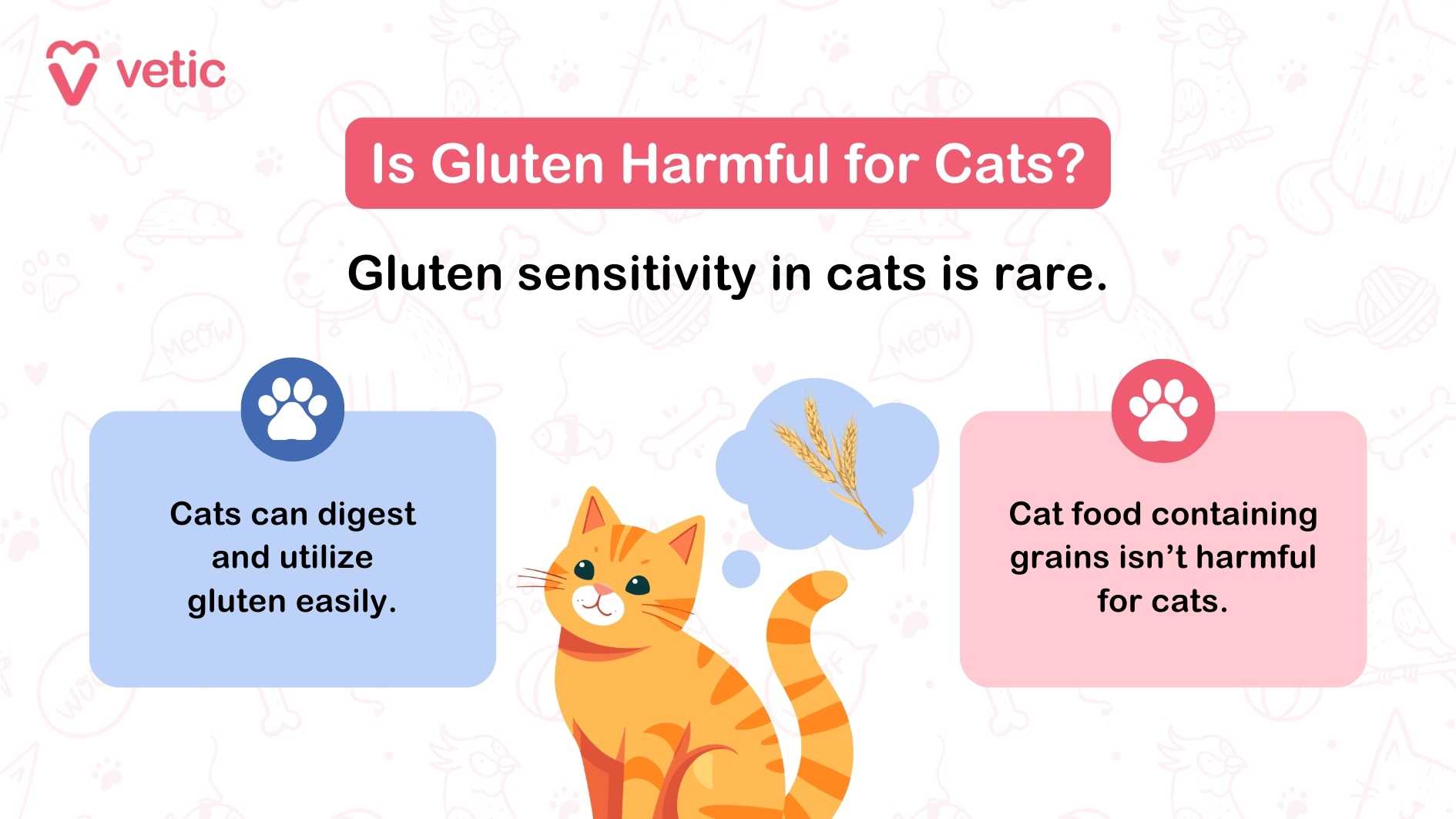
While 1% of the world’s population has Celiac disease and close to 6% have gluten sensitivity, it is not at all common in cats. Gluten allergy in cats is rare.
Research shows that cats can digest and utilise gluten effortlessly. So, not all cat foods labeled “gluten-free” are great for our feline friends, and not all cat foods that contain grains are bad for them either.
Can Grain-Free Cat Food be Harmful?
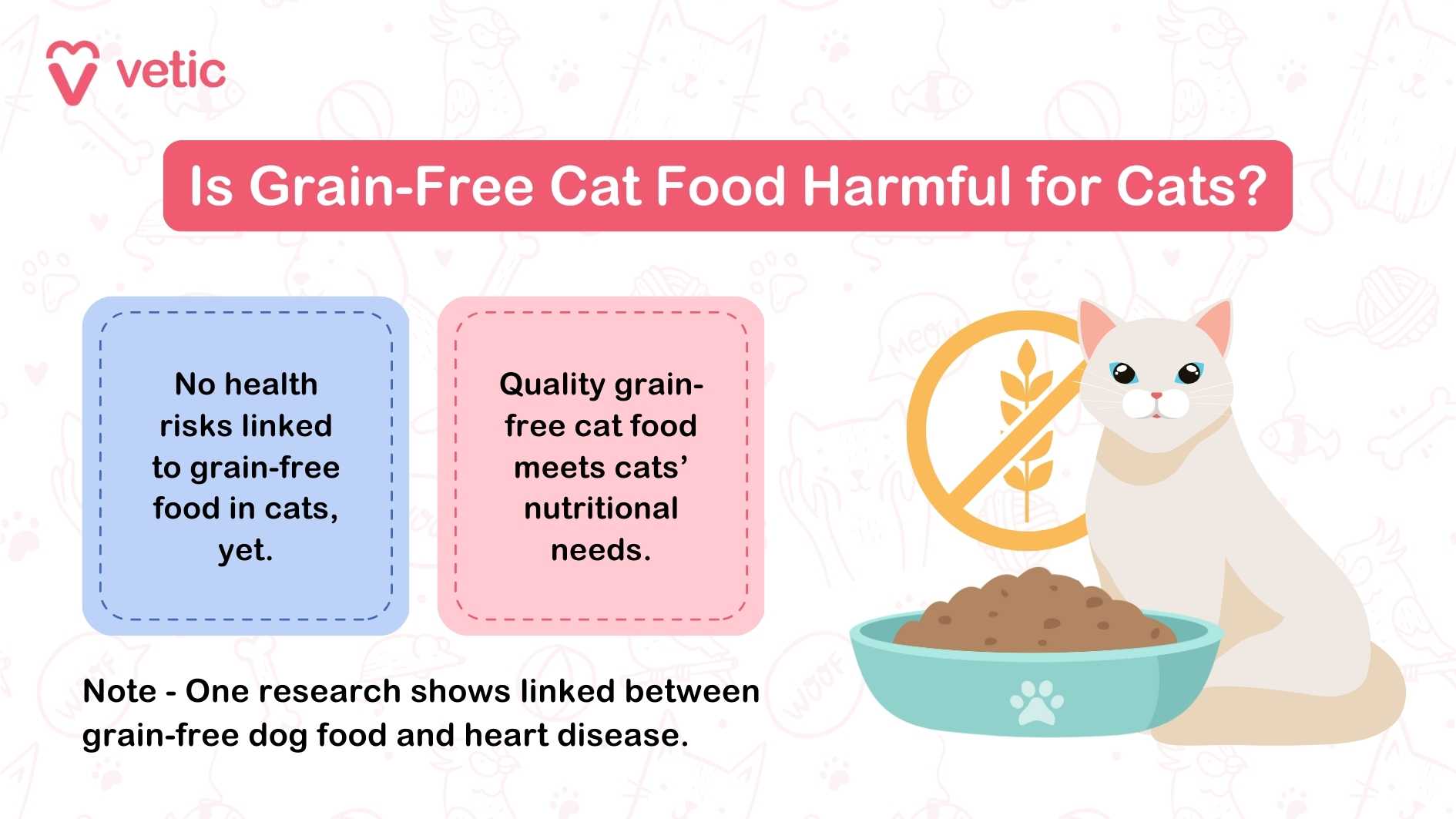
Cats can thrive on grain-free food. There has been no link between grain-free food and cat health risk as of now.
Although, it’s worth noting that there is one study that has linked grain-free dog food with heart disease in dogs.
Why are Grain-Free Cat Foods so Popular?
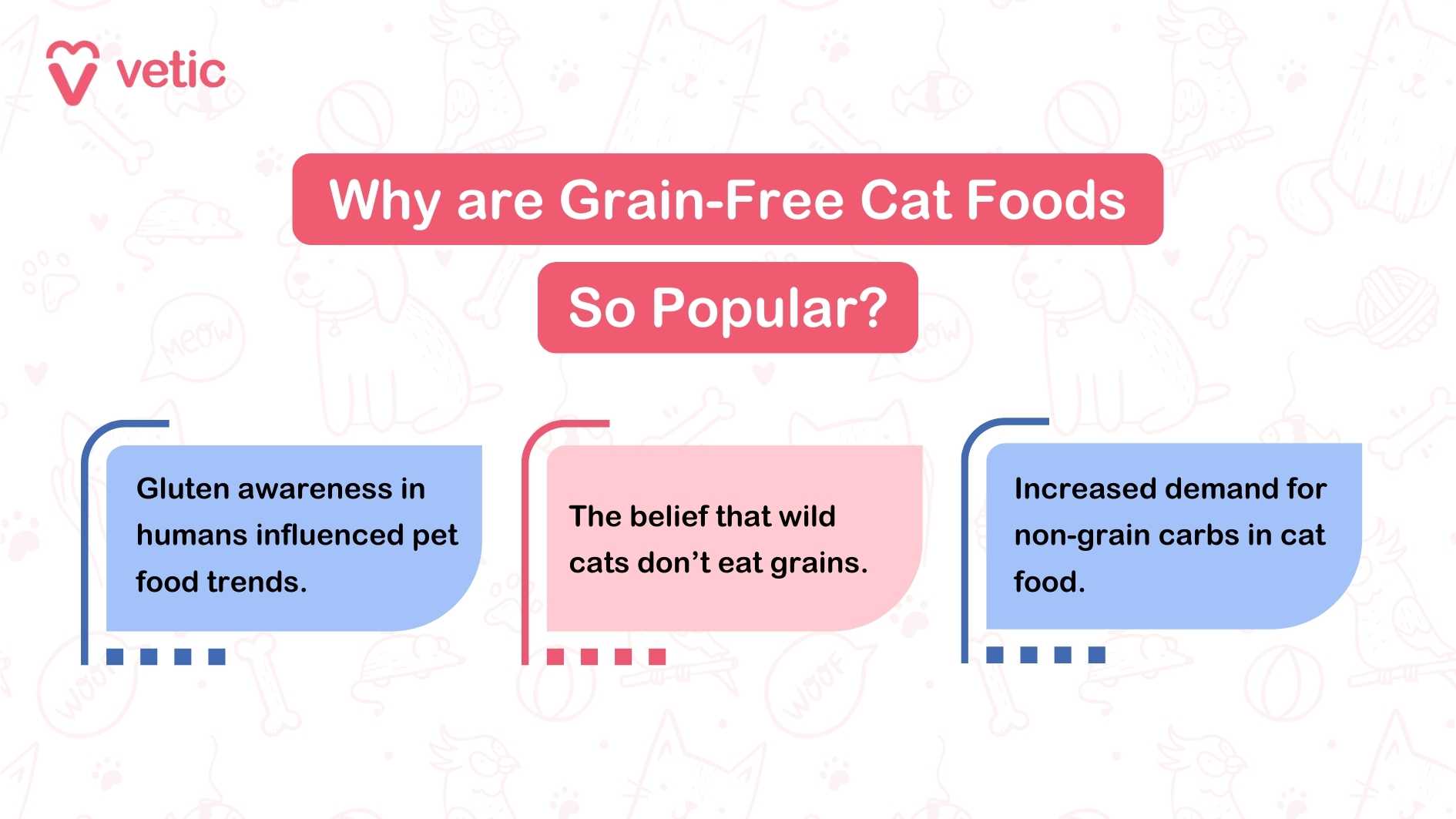
As of early 2000s, more people began to get their diagnosis on gluten sensitivity, intolerance and allergy. There has been a wave of awareness about gluten-sensitivity and Celiac disease in humans since then.
One can say, it influenced the pet parents to believe that gluten-free would benefit their furbabies as well. And that they were making a conscious effort to offer a better quality of life to their pets.
By 2010, there was a surge in the demand and production of gluten-free (or, grain-free) pet food that used non-grain sources of carbohydrates such as potatoes, sweet potatoes, peas and even pumpkin.
Moreover, the concept that cats in the wild do not consume any grains. They get their food from hunting smaller animals. So, if domestic cats are descendents of wild cats, they shouldn’t eat grains either!
Now, you can find grain-free cat food in almost every pet store and app that sells pet products.
Does Your Cat Need Grain-Free Cat Food?
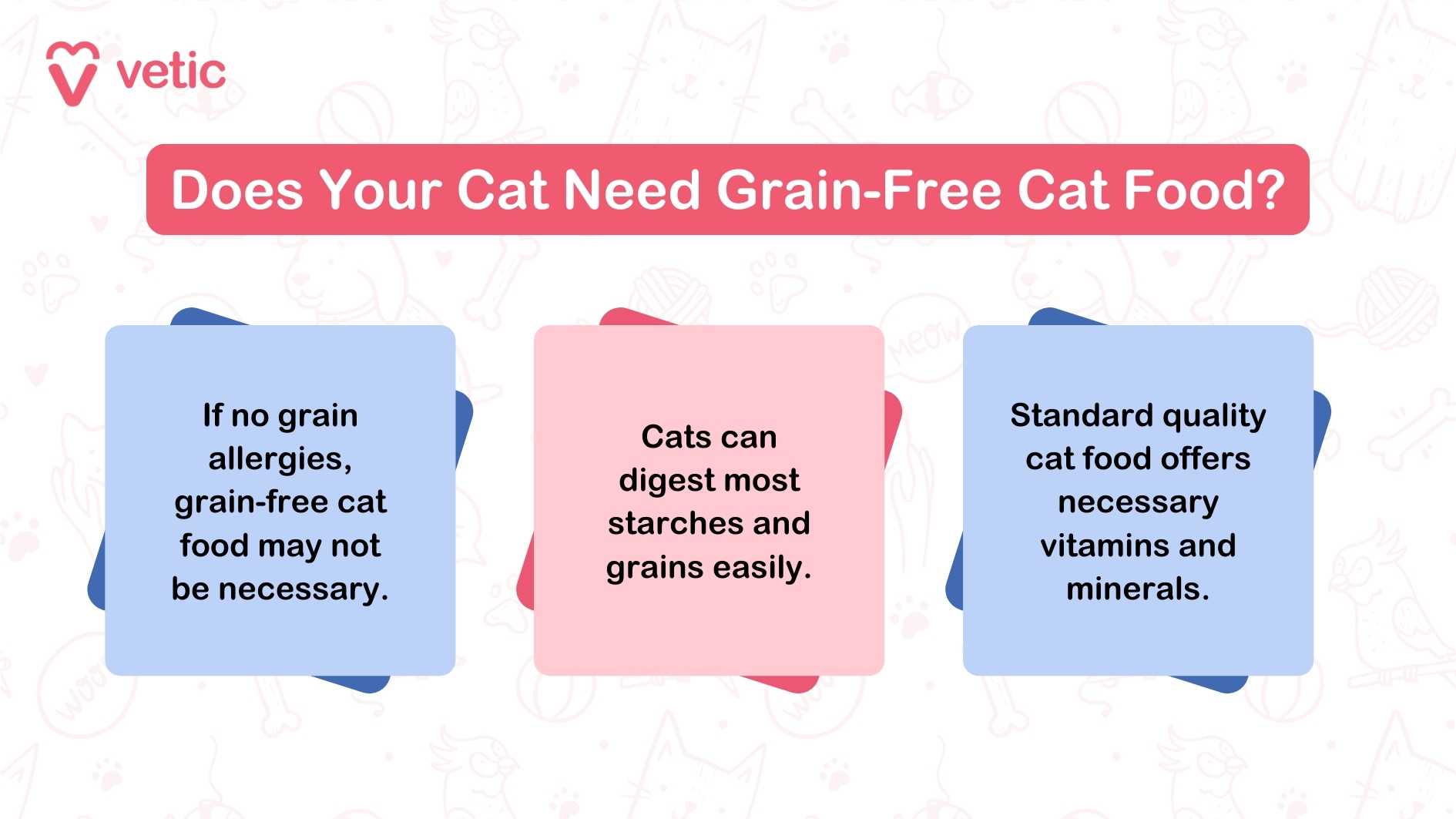
Does your cat have any grain allergies? Do they have gluten sensitivity? If the answer to both is “no”, then your cat probably doesn’t need grain-free food.
Now, wild cats may not eat plant-based carbohydrates, but their domestic counterparts can easily digest up to 95% of the starches from the grains mentioned above. Many cats can also digest vegetables (although we do not recommend feeding vegetables directly to your cat, unless your veterinarian has prescribed it).
The grains added to the cat food are not fillers but inexpensive sources of vitamins and minerals that cats do need. Years of observation and studies show that cats who consume regular cat food, which aren’t grain-free, can live a healthy and long life.
Will Grain-Free Cat Food Cause Nutrient Deficiencies in Cats?
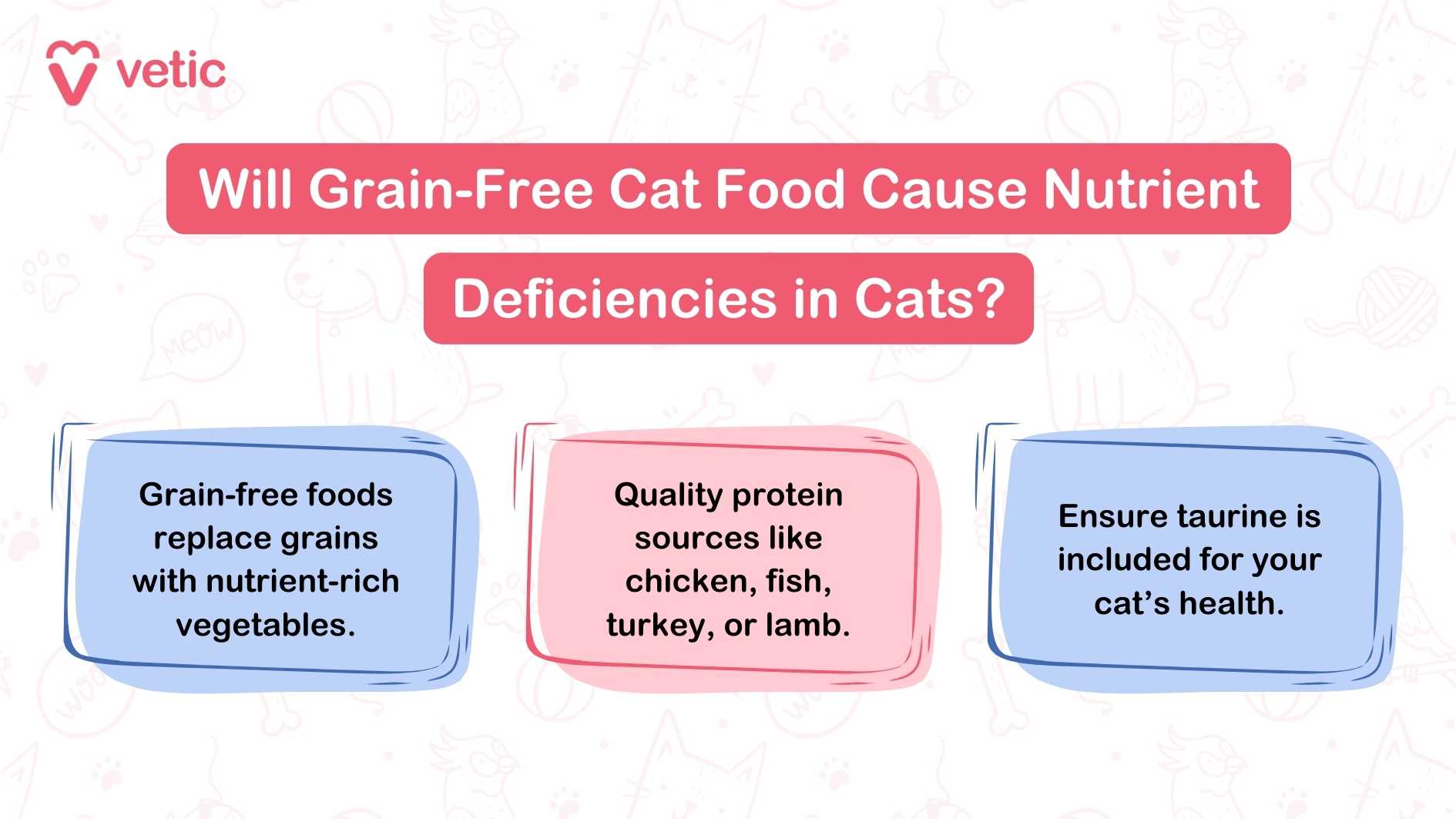
No. Grain-free cat food simply replaces grains such as barley, corn, rye and wheat byproducts with starchy vegetables. And since domestic cats can digest vegetable carbohydrates, they can easily get the necessary nutrients from their grain-free food as well.
Moreover, the food has good quality protein including fish, chicken, turkey or lamb. And as long as your cat isn’t allergic to any of these meat sources, they can get their daily fill of protein from the right quantity of grain-free cat food.
Make sure, your cat’s food has taurine. It is an essential amino acid that all cats need for their health, immunity and survival. It is a must-have in any food you choose for your cat.
Can Grain-Free Cat Food Help My Cat with Grain or Gluten Allergies?
Firstly, you need to ensure that your cat’s cause of allergy is their food. Just like humans, cats can be allergic to environmental factors including pollen, dustmites, and floor cleaners.
Did you know? Some cats can also be allergic to HUMANS!!!
While allergy testing can be expensive for pets, they can prevent long-term complications in terms of diet, nutrients and chronic inflammations.
Some of the common signs of food allergy in cats are –
- Fur loss
- Scratching
- Scabbing
- Intestinal issues
Another way that veterinarians rule out food allergies in cats is by suggesting an elimination diet. It is still a gold-standard practice to test if cats are allergic to a specific food.
Please note:
- Runny nose
- Watery eyes
- Repeated sneezing
- Coughing
Aren’t signs of food allergies. These are signs that your cat can be allergic to something present in their environment.
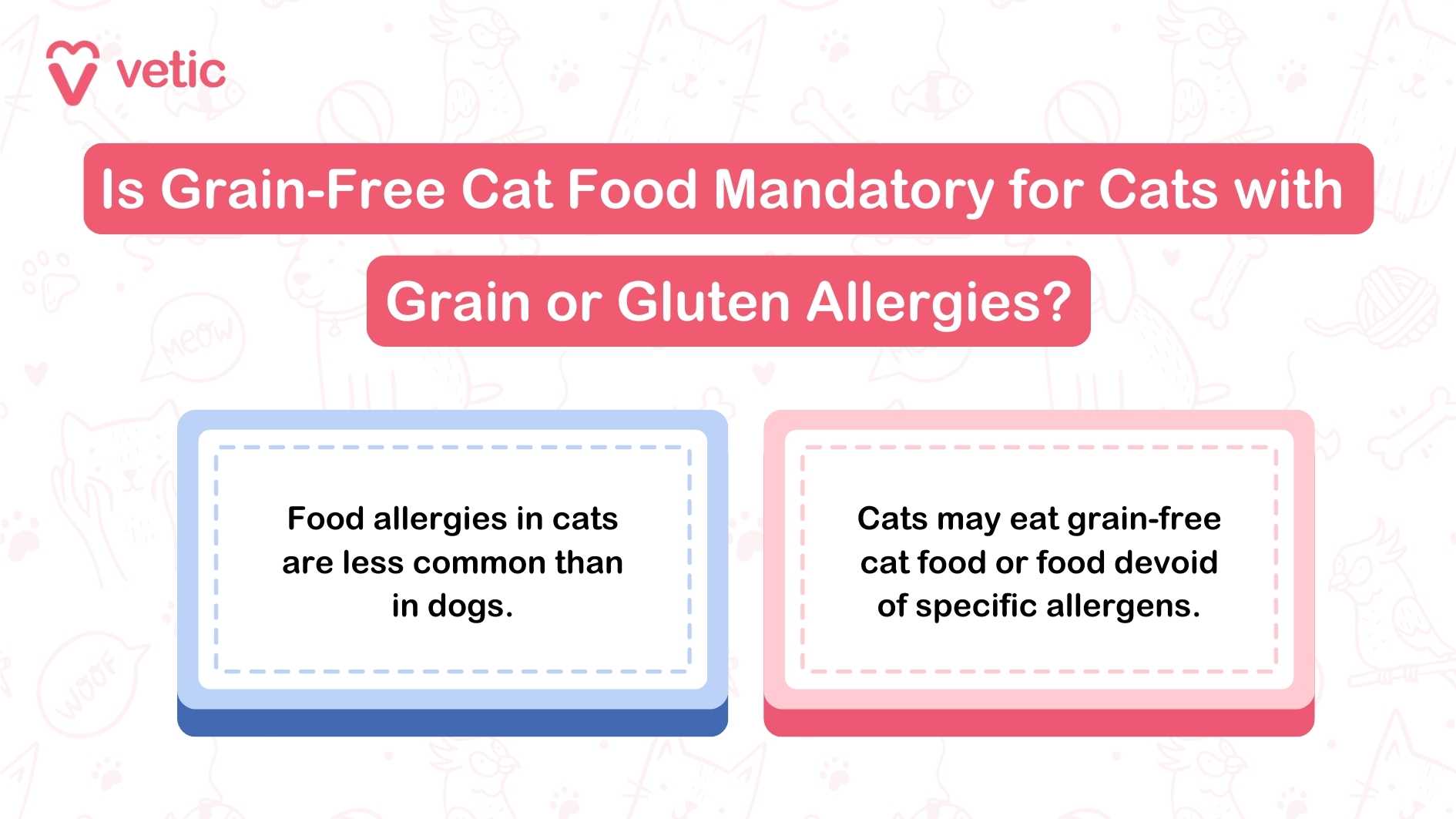
The idea is to eliminate all possible allergens from their diet. It can include the elimination of fish, eggs, chicken, lamb and other red meats. Typically, you wait until the allergic response goes away and then re-introduce the protein sources one by one.
If you see a flareup, you immediately stop that particular protein source since it is an allergen for your cat and replace it with another, and wait for a sign.
Other allergens that the veterinarian may ask you to avoid include dental sprays, oral medications and supplements (since they are often flavoured with animal protein).
Thankfully, food allergies are much less common in cats as compared to dogs. And if your cat does have allergies, you can try hypoallergenic or ultrahypoallergenic packaged food to see if they reduce the food allergy signs and symptoms.
Should You Feed Your Cat a Grain-Free Diet?
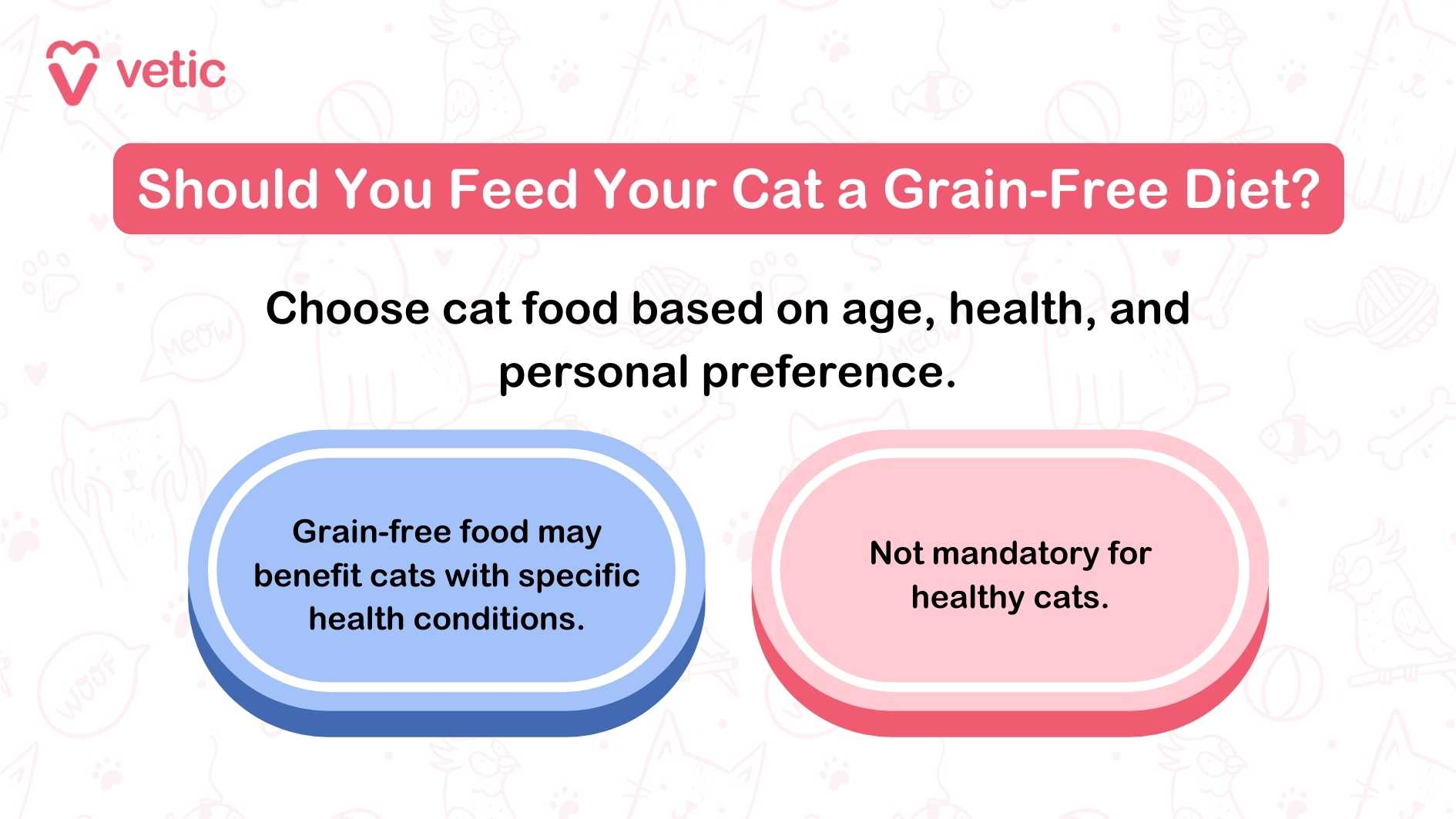
Some cats with irritable bowel disease, chronic inflammatory conditions and diagnosed food allergies do benefit from grain-free diets.
Nonetheless, it is not mandatory to feed house cats grain-free diet. You may pick grain-free food if your cat prefers it over other commercial cat food (we all know how picky cats can be when it comes to food options). You can choose any cat food that’s appropriate for their age and health condition. The food you choose should meet their nutritional needs.
1. What does grain-free cat food mean?
Grain-free cat food contains no grains like wheat, corn, or rice. Instead, it uses starchy vegetables or legumes as carbohydrate sources.
2. Is grain-free cat food better for my cat?
Not necessarily. Most cats can digest grains well. Unless your cat has a grain allergy or sensitivity, grain-free food isn’t required for their health.
3. Does grain-free cat food have fewer carbs?
Not always. Grain-free foods often replace grains with ingredients like potatoes or peas, which may have similar or higher carbohydrate levels.
4. Can grain-free cat food cause health issues?
No evidence links grain-free cat food to health risks in cats. However, for dogs, grain-free diets have been associated with heart disease.
5. Can cats eat grains?
Although wild cats typically get energy from protein by hunting prey. However, domestic cats can eat and digest grains, and benefit from their nutrients.
6. How do I know if my cat needs grain-free food?
If your cat shows signs of allergies like itching or intestinal distress, consult your vet. Grain-free diets might help if a grain allergy is diagnosed.
7. Are grains just fillers in cat food?
No, grains provide essential nutrients like vitamins, minerals, and energy. They are not just fillers but valuable ingredients in most cat diets.
